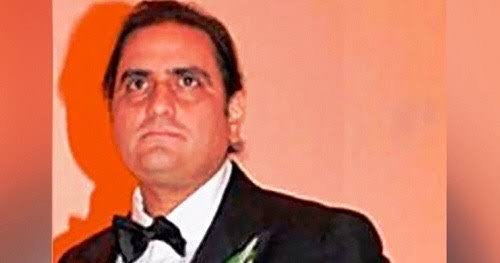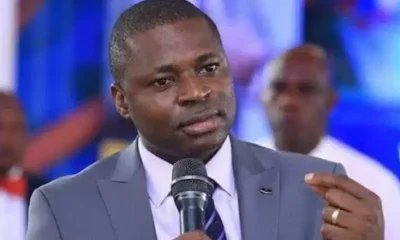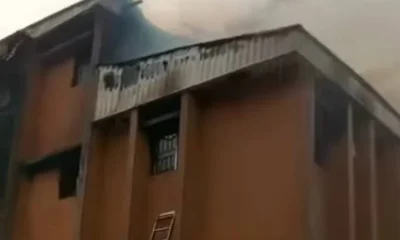News
Jorge Miranda: “Cape Verde Must Reject The Extradition Request, Have Alex Saab Released And Thus Comply With Its Constitution”

Jorge Miranda: “Cape Verde Must Reject The Extradition Request, Have Alex Saab Released And Thus Comply With Its Constitution
Jorge Miranda is one of the most distinguished Portuguese constitutionalists. Now retired, he held the Chair as Professor at the Faculty of Law at Lisbon University, where he continues to teach classes in Master’s Degree and Doctoral courses.
He is also the Chair at the Faculty of Law of the Portuguese Catholic University. He develops research in the areas of Constitutional Law, Political Science and International Law. His specific interests are Fundamental Law, Theory of Democracy, Electoral and Referendum Law, Relations between Constitution and International Law and the structure of constitutional standards.
In this interview with “Notícias do Norte”, he addresses several legal aspects of the Alex Saab case: the connection and involvement of Cape Verde with the ECOWAS Court of Justice, the consequences of non-compliance with a decision of that Regional Court, violation of the right of defence, terms of protective custody and house arrest, the status of special envoy. Professor Jorge Miranda’s responses are a contribution and enrichment to Cape Verde’s legal science. But, also for a debate that is about to be held and that needs to be held at a high level, where Jorge Miranda sets this debate.
Noticias do Norte – On 15th March, the ECOWAS Court will decide on the case brought by Alex Saab.
Despite the Cape Verdean authorities [the Attorney General] claiming that CAPE VERDE is not linked to the ECOWAS Court, the lawyer engaged by the government has participated in the hearings, with counter claims, submitting opinions.
Does it make sense not to recognize the legitimacy of this Court and at the same time participate in it?
The intervention of a lawyer formally mandated by the Government of Cape Verde in the trial of Alex Saab’s extradition process means, necessarily, acceptance of the jurisdiction and decisions of the ECOWAS Court of Justice. There is, therefore, an obvious contradiction.
Is it possible in this case to apply the standard of recognition for conduct and consent?
This standard, therefore, can be applied.
In the event the ECOWAS Court decides in favour of the release of Alex Saab and Cape Verde does not accept the decision, what happens?
Failure to comply with the ECOWAS Court of Justice decision would involve serious political consequences for Cape Verde as an ECOWAS member State and could even imply international responsibility.
In the light of the right to defence, is the constant refusal sustainable of Alex Saab’s foreign defence lawyers to enter the country, when the ECOWAS Court and the Court of Appeal already recognized this right as well founded?
This refusal is manifestly and clearly unsustainable in the light of the right of defence.
Cape Verdean law is clear in the sense that a lawyer in the fulfillment of his mission is as a magistrate. He cannot be searched or detained, but Alex Saab’s local lawyers are searched and yesterday, the head of the legal defence team was arrested, how do you analyse these facts?
Such measures constitute violations of the right of defence and of the right of access to justice.
Jurists who we spoke with, argue that when house arrest takes place under police surveillance, it ceases to be house arrest and becomes protective custody, which is what happens with Alex Saab’s house arrest, do you agree with that opinion?
I totally agree with that opinion.
The same jurists consider that the time of protective custody should be added to the time of house arrest, do you agree?
I also agree with that opinion. House arrest is also a form of imprisonment.
Anne Sacoolas killed a person, fled the U.K. claiming diplomatic immunity. The United States declined the U.K.’s extradition request for Sakoolas to face the dead boy’s family and justice in the U.K. She has now offered to do community service to “contribute to achieving the outcome” because she claims that what she did “is not a crime in the USA”. If driving on the wrong side of the road and killing someone while doing so is not careless driving, then what is it? Alex Saab never killed anyone and was involved in a special humanitarian mission for his country. Alex Saab claimed immunity, presented irrefutable evidence to support his status and purpose of his mission, but he was nonetheless illegally arrested at the request of the United States. Hypocrisy? Is this a case of one sauce for the goose and another for the gander, applying double standards? What is your opinion, Professor Miranda?
There is an evident hypocrisy: “applying double standards”
The ECOWAS Court of Justice (ECJ) had already ruled on the precautionary measures applied to Alex Saab, having determined that he be placed under house arrest. In your experience, what should be expected of that same court in what concerns the adjudication on the extradition process, whose ruling will be known on 15th March?
I don’t know ECOWAS Court of Justice case law, but I hope that, due to its own functions, it is aware of and attentive to human rights and that, therefore, it denies the extradition of Alex Saab.
Alex Saab is under house arrest after being incarcerated. If the idea was to lighten the enforcement measure, did it make sense to take him out of one prison and put him in another?
House arrest is also a form of detention, an enforcement measure of personal freedom.
The Cape Verde Supreme Court (STJ) now says that Alex Saab is not in prison, and that it is the police who are misinterpreting the situation, imposing on him on its own initiative, numerous restrictions only conceivable in a closed regime. Don’t you think that the STJ – Supreme Court of Justice, should be more forceful in its ruling by ordering the police to lift these conditions on the movements of the extraditee, the person whose extradition is sought?
The Supreme Court of Justice must be clearly forceful in the sense of ordering the conditions lifted from Alex Saab. In fact, it is unacceptable that the police, on their own initiative and without being authorized by a judicial decision, can impose restrictive measures on freedom.
Cape Verde was represented, in the extradition process trial, at the ECOWAS Court of Justice, which took place earlier this month, by a formally mandated lawyer who was actually involved at that hearing. Is there any doubt after that that Cape Verde recognizes the jurisdiction and decisions of that regional court?
RE: The intervention of a lawyer formally mandated by the Government of Cape Verde in the adjudication of Alex Saab’s extradition process necessarily means acceptance of the jurisdiction and decisions of the ECOWAS Court of Justice.
NN – In the light of law and international law, what should Cape Verde’s response be, according to your reading of the current situation, to a possible decision by the ECOWAS Court of Justice to reject the extradition request and to have Alex Saab released?
Cape Verde should reject the extradition request and have Alex Saab released, not least because its Constitution determines that the legal acts emanating from competent bodies of supranational organizations – such as ECOWAS – of which Cape Verde is a party, are directly in force and apply in the domestic legal system, provided that this is established in the respective constitutional conventions (Article 12, paragraph 3 of the Constitution of Cape Verde).
What would the consequences be for Cape Verde, of a possible breach of a court order in this regard?
Failure to comply with the ECOWAS Court of Justice decision would involve serious political consequences for Cape Verde as an ECOWAS member State and could even imply international responsibility.
The Government of Cape Verde has repeatedly said that it does not comment on this process because it is in the hands of the justice system. Will this position be defensible considering that it was the Government that set in motion the Public Prosecutor to order the Judiciary Police to detain Alex Saab and, later, to instruct that body to proceed, on behalf of the State, to the courts, with the request for extradition on behalf of the United States.?
It is astonishing that, on the one hand, it says that it does not comment on the process because it is in the hands of the justice system and, on the contrary, it has deployed the Public Prosecutor’s Office to detain Alex Saab and that it proceeds with an extradition request on behalf of the United States!
To what extent will the position of the Government of Cape Verde be decisive for the outcome of the case?
The Government of Cape Verde must also comply with its Constitution and international law. The detention of Pinto Monteiro, Alex Saab’s lawyer, is still astonishing.
In short, is Alex Saab, or not, a special envoy and diplomat from Venezuela?
It is each state that determines the category of its special envoy. It would mean interference in Venezuela’s internal affairs were Cape Verde to define who its special envoy is or is not and deny Alex Saab that status. It would also be an interference in the internal affairs of another State, contrary to the Constitution itself (a serious violation of Article 11, paragraph 1).
Indeed, the Constitution of Cape Verde is one of the most exhaustive and precise constitutions in the world in the field of human rights, as I demonstrated in the paper published in “Esperança Semper – Tribute to Jorge Carlos Fonseca, on the occasion of his 70 years” (Praia, 2020, pages 593 and following).
-

 Entertainment4 days ago
Entertainment4 days agoNigerian Singer, Ifunanaya, Died After Snake Bite In Abuja
-

 News5 days ago
News5 days agoI’ll Rather Build Industries Than Build Mega Churches — Prophet Sam Ojo
-

 Opinion4 days ago
Opinion4 days agoBola Oyebamiji: Beyond Skelewu Dancer: The Rising Technocrat Poised To Govern Osun State In 2026 By Wale Atoba
-

 News5 days ago
News5 days ago95-Year-Old Woman Dies As Fire Guts Residential Building In Anambra


